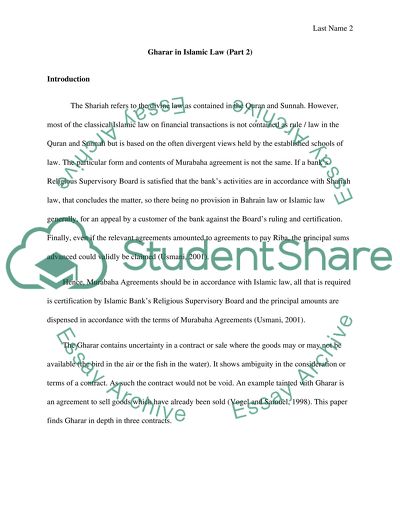Cite this document
(“Gharar in Islamic Law Assignment Example | Topics and Well Written Essays - 2500 words”, n.d.)
Gharar in Islamic Law Assignment Example | Topics and Well Written Essays - 2500 words. Retrieved from https://studentshare.org/law/1441315-gharar-in-islamic-law-part
Gharar in Islamic Law Assignment Example | Topics and Well Written Essays - 2500 words. Retrieved from https://studentshare.org/law/1441315-gharar-in-islamic-law-part
(Gharar in Islamic Law Assignment Example | Topics and Well Written Essays - 2500 Words)
Gharar in Islamic Law Assignment Example | Topics and Well Written Essays - 2500 Words. https://studentshare.org/law/1441315-gharar-in-islamic-law-part.
Gharar in Islamic Law Assignment Example | Topics and Well Written Essays - 2500 Words. https://studentshare.org/law/1441315-gharar-in-islamic-law-part.
“Gharar in Islamic Law Assignment Example | Topics and Well Written Essays - 2500 Words”, n.d. https://studentshare.org/law/1441315-gharar-in-islamic-law-part.


